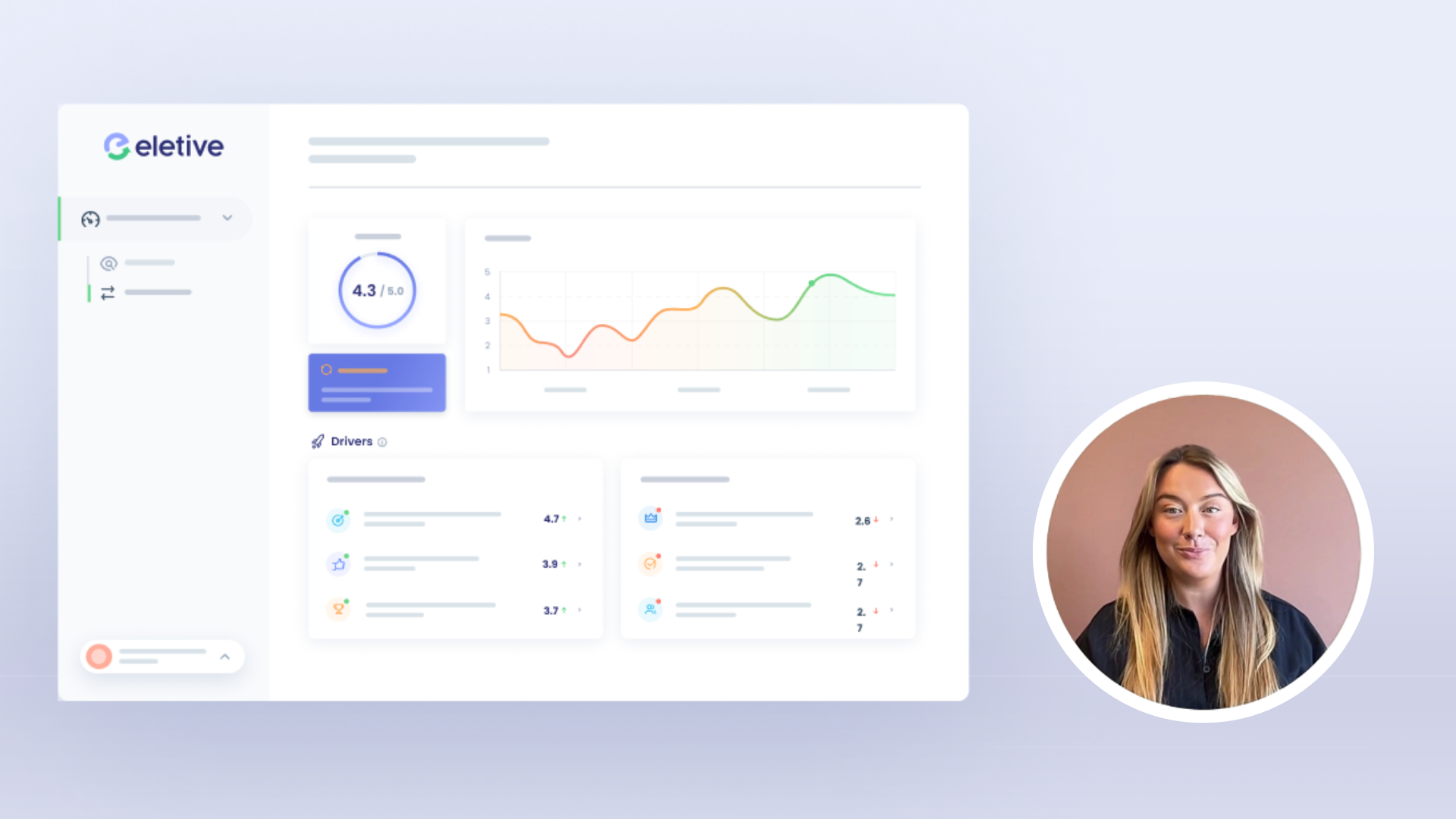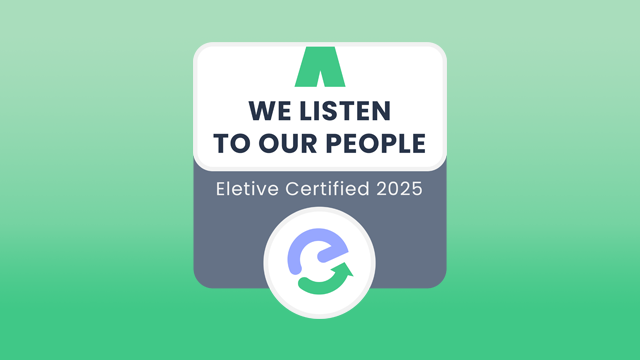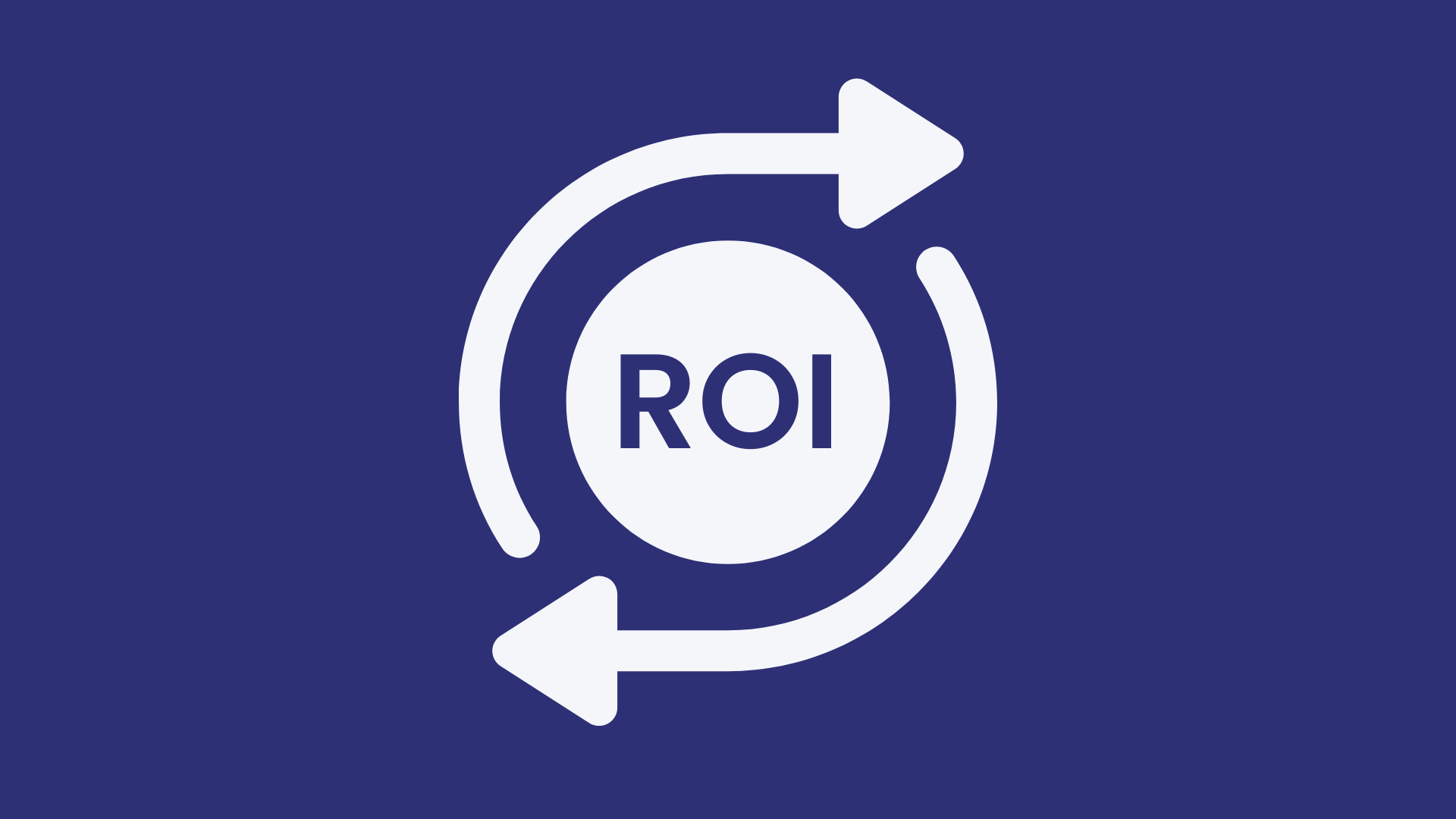Job satisfaction is a positive emotion that comes from how we see our jobs or job experiences. How does this benefit your company? It leads to better business outcomes through improved productivity, decreased turnover or increased retention, better attendance, and reduced work stress.
What is job satisfaction and how to measure it?
Job satisfaction can be measured through employee engagement survey questions and regular pulse surveys. The more engaged your employees are, the more satisfied they are likely to be with their jobs. Satisfied employees are more productive, stay with the company longer, have better attendance, and are less stressed.
Related reading: Measure and increase eNPS.
Often, employee engagement goes together with job satisfaction. When employees have a sense of engagement with the company, job satisfaction is derived from the same. This can be measured through performance reviews and regular pulse surveys.
In the last decade, two of the biggest concerns of HR management are employee engagement and job satisfaction. A Gallup survey shows that most workers are either just present at work or actively disengaged. Many employees need that extra nudge to become organised and make the right move toward obtaining key results and the best way to achieve this is through HR surveys.
How to improve job satisfaction
In this article, we explore why job satisfaction is important and how you can influence it. So, let’s begin!
1. Provide opportunities for career advancement
The company's career development program helps employees advance in their careers and feel more accomplished and engaged in their work. Different job opportunities can present different challenges for employees, so having some common guidelines to follow can be helpful. For example:
Promotions
Mentor programs
Staff exchange programs
Regular training and development opportunities
2. Focus on employee engagement
As we have already established, employee engagement is highly effective in increasing job satisfaction. Employees that are highly engaged and satisfied with their jobs often translate into satisfied customers.
Digital employee surveys can help you identify areas where employees need more support to improve engagement and productivity. This is a survey much recommended as research shows only 32% of employees are engaged.
Leaders and organizations are increasingly focusing on employee experiences and using employee feedback to shape HR policies. It should be mentioned that software for human resource surveys has a solid foundation to help process the data collected so that the right actions can be taken.
3. Provide job benefits
Increasing job benefits by providing wellness activities and encouraging a good, healthy work-life balance is a great tip to enhance employee satisfaction. Pulse surveys can help you identify problems and encourage employees to take necessary steps to better their health before it is too late.
At Eletive, we provide employee wellness surveys to give you the exact information needed that might help in making more job benefits or programs available to employees across the organization. In the wake of the pandemic, most companies have adapted to hybrid working. Work from home is now an option and this can also be an added benefit.
By integrating your surveys into your tech stack, you can ensure there is a feedback loop in place from the start to increase employee survey participation and thereafter, use real-time pulse surveys to track employee satisfaction as well as open-ended questions. This can help to be on top of things where tracking an employee’s needs are concerned.
This article gives you more tips on job benefits.
4. Offer competitive compensation
Although job satisfaction does not come from compensation, sometimes employees feel motivated to have regular compensation available. It is, however, one of the top contributors to job satisfaction according to Society for Human Resource Management.
Companies often give employees bonuses based on year-end company results or the individual's achievement of their set goals. In some cases, the manager has the discretion to decide when bonuses are paid out, whether it be annually, quarterly, or even after each project is completed.
Indirect compensation is a financial form of compensation, though employees do not receive it directly in cash. This can be seen as monetary or non-monetary, depending on the organization.
5. Foster job security
Another efficient way to boost employee morale is to provide an enhanced degree of job security. In an age where finding a job is so critical, showing loyalty towards employees will be highly reciprocated.
Every company needs to provide a prominent level of job security if they want to hire the best people in the business. Take employee feedback into consideration.
It is good to create growth recognition within the company and if you have a good employee engagement survey, you can bounce off that to recognise job satisfaction. This does not necessarily mean engaged employees are always satisfied. A specific survey can be conducted on job satisfaction to help benefit and improve your knowledge of the employees’ satisfaction.
Key Takeaways
Introduce career advancement opportunities to help boost job satisfaction, for example, use promotions, regular training, and mentor programs.
Conduct regular employee surveys to keep employee engagement under control.
Include good plans around direct and indirect compensation to help boost employee morale.
Provide active measures to promote job security as this is a good way to enhance job satisfaction among employees.
Make the working environment highly appealing and leave no room for unsatisfied or disengaged employees.
Job-satisfaction-illustration:format(png)/f/288714721386412/046f8c6920/pink_modern_online_business_tips_and_tricks_billboard_web_ad__1250____720_px___2048____1080_px___1_.png)
Job Satisfaction FAQ
Why is job satisfaction important for an organisation?
Job satisfaction has become a popular study for research. The benefits of job satisfaction are many and include reduced turnover, increased productivity, better attendance, low work stress, reduced number of sick leave, and low absenteeism.
How does job satisfaction affect employee performance?
The levels of job satisfaction are directly proportional to an employee’s performance. Confucius once said, “Choose a job you love, and you will never have to work a day in your life.” Often, when you love your work and are content with it, you will deliver positive results on a regular basis.
Can job satisfaction be directly measured?
The most effective way to understand how your employees feel at their workplace is to conduct regular employee surveys. With Eletive, you can start by using the best practices for employee engagement surveys. These surveys help assess an employee's job satisfaction with a range of job satisfaction questionnaires and can help you implement the factors we discussed to improve your employee experience.
Recommended reading: Employee engagement survey questions - what to ask and why?
What are the benefits of job satisfaction?
Job satisfaction has a positive effect on employee performance, job commitment, and job security. It can also lead to better customer service, increased employee loyalty, and improved workplace relationships.
What are the strategies to increase job satisfaction?
There are several strategies to increase job satisfaction. These include providing opportunities for career advancement, focusing on employee engagement, providing job benefits, offering competitive compensation, and fostering job security.
What are the components of job satisfaction?
The components of job satisfaction include job security, work environment, job content, job rewards, relationships with colleagues, and relationship with supervisor.
:format(png)/f/288714721386412/8bc74e1c86/ewebinar__1_.png)



























:format(jpeg)/f/288714721386412/d53475a3c7/blog-5-ways-to-improve-job-satisfaction-hero_media.jpg)
:format(jpeg)/f/288714721386412/1280x720/94229f239a/blog-11-best-people-analytics-tools-in-2026.jpg)
:format(jpeg)/f/288714721386412/e490991a3d/blog-employee-feedback-software-hero_media.jpg)
:format(png)/f/288714721386412/1200x675/4bf26615f3/virtual-hr-event-people-success-2026.png)